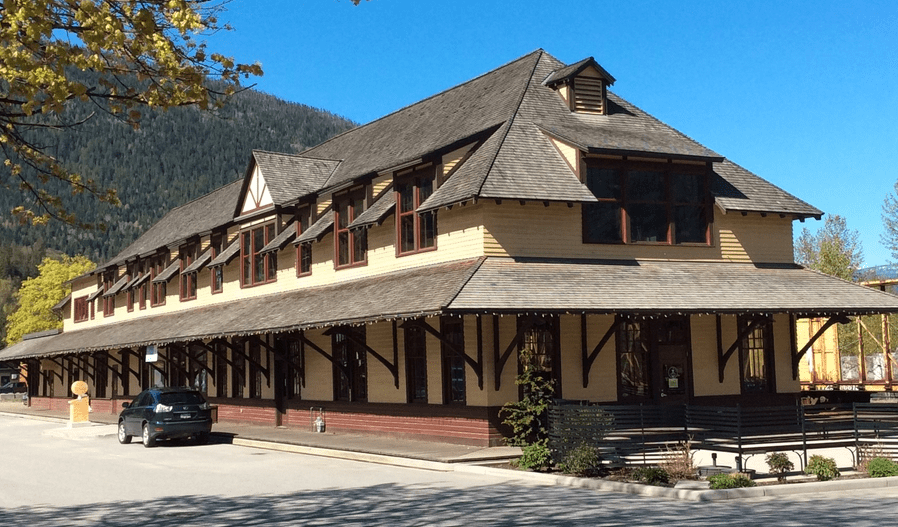Hints of recession echo through chambers of economy in city as year moves on
There are signs that a recession could be settling in for Nelsonites in 2023, according to the top executive with the city’s chamber of commerce.
Tom Thomson, executive director of the Nelson and District Chamber of Commerce, was not adamant that there would be an economic downturn in the city as the year moved on, but he said there were some suggestions it could happen.
With inflation still soaring and interest rates breaking records, it’s natural to assume it might just continue through the year, he said, and that’s bad for business.
“After all, the bill for all that spending to get us through the pandemic had to arrive at some point, right?” he said. “Most banking economists expect inflation to moderate and come down in 2023, but it’s not a slam dunk. It’s far from a slam dunk. We have also watched the Central Bank hold steady and not increase prime lending rates for the first time in months. Those are certainly promising signs. I have heard one economist call it a ‘slowcession.’”
Thomson pointed to the sluggish local residential single family building market — currently offset by a couple of larger scale commercial-residential developments that are just getting underway — showing numbers that may differ significantly than the last few years.
And with the food and beverage sector and accommodators, as well as the event-festival industry suffering crippling restrictions during many parts of the COVID-19 pandemic, it will take more time for them to recover, he explained.
“People must still get back in the mindset of attending local events and productions, and there have been some encouraging signs recently,” he said.
Just before the pandemic municipal government was trending upwards, noted City of Nelson chief financial officer Chris Jury when he spoke to city council during budget discussions before Christmas, then things fell off the rails and then quickly recovered as stimulus funds came in.
“There has been a shift in recent quarters away from goods and now back into services, and people are travelling again,” he said.
“Some of that momentum is slowing and that might be partially due to interest rate hikes and things that we have seen. That might have the effect of slowing inflation down a little bit.
“So, although we see household spending increasing, what is missing for me on this is this required spending or is it discretionary spending? Does this increase in household spending reflect the fact that it is costing me more to pay my mortgage, put gas in my car and buy groceries?”
A lot of the upward pressure on pricing is accelerating household credit card debt, Jury said, and this has been flagged as a priority for Nelson and Area Economic Development Partnership (NAEDP).
“Many businesses have never navigated through an inflationary period and, tagged with a possible recession, … this is new territory,” he said. “So (NAEDP) are definitely looking at how do we support our businesses in terms of what they can expect and do they have savings to get them through, and are they managing inventory in the right way.”
Jury said the expectation is 3.5 per cent average inflation for 2023, dropping to 2.8 by December 2023, with a return to two per cent by the end of 2024.
Those figures could give some light to residents and businesses owners in the city, said Thomson, but right now it seems like a far off, and dim, luminescence.
“There have certainly been a lot of positive signs that make you feel cautiously optimistic, but the rising costs of doing business, supply chain issues, help wanted signs and labour shortages, the cost of borrowing, and an ongoing employee housing challenge continues to hang over our head, not just in Nelson and area, but many parts of the province and country,” he said.
Membership lens
Businesses continue to struggle with the high cost of doing business and that seems to be piling up at every turn, noted Thomson when asked about how the chamber member businesses were faring, overall.
“(A) lack of qualified employees and a low unemployment rate makes it hard to recruit, coupled with rising labour costs, employee health tax, paid sick days, inflation, cost of borrowing, rising rents, and now the … serious pressures from all levels of government for higher taxes will linger for a while,” he explained.
Thomson noted that, although the local business sector remains volatile, for the most part the retail season prior to Christmas was promising for many retailers and there is a strong local and regional “appetite to support local business as much as possible.”
He pointed to the Think Local First and Buy Local campaigns — orchestrated by the chamber and the NAEDP — as some of the reasons people try to stay active with local business and that has helped reduce the economic and pandemic-inflicted pain for many businesses.
“Locals must support businesses year-round, and then the visitor economy helps many accommodators, food and beverage and retail, in many cases,” Thomson said.

























